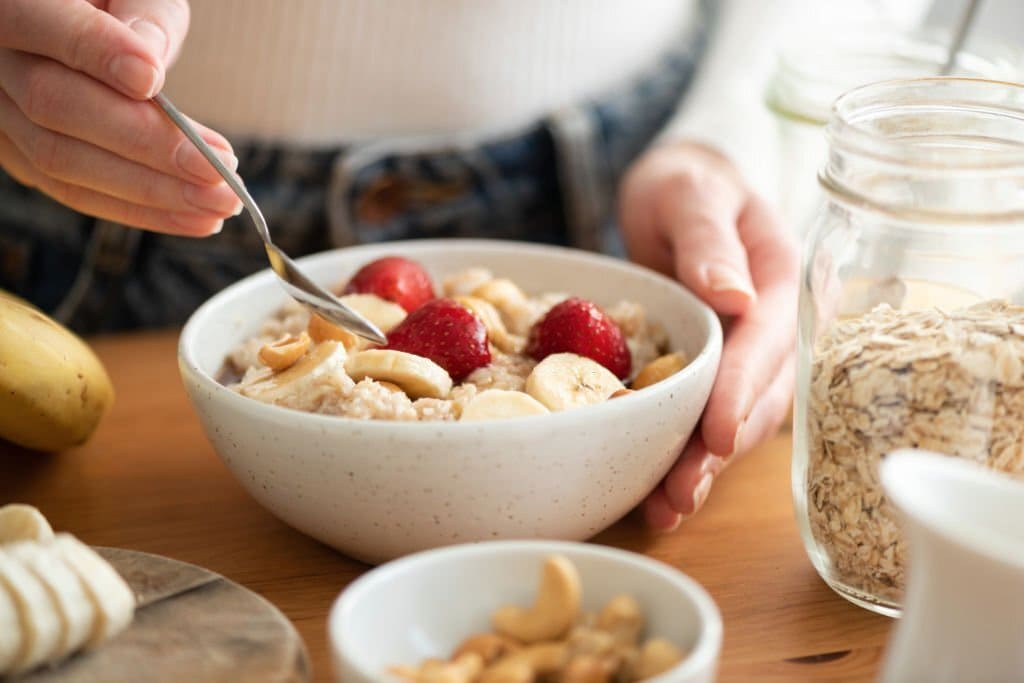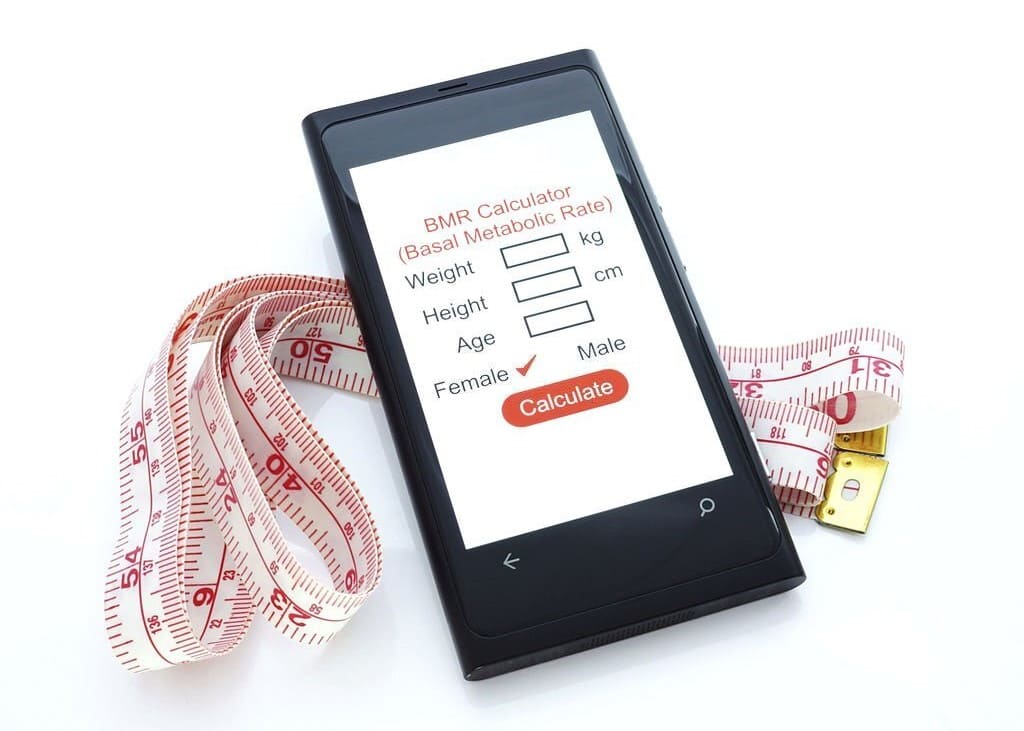A BMR calculator calculates the total number of calories your body needs when you are at rest. BMR (Basal Metabolic Rate) is the amount of energy your body spends when you are at rest for maintaining vital function.
Most of these functions cannot be controlled on our own and go unnoticed most of the time. For example, heart beating, kidneys filtering waste, lungs breathing in and out, cell production, keeping your body temperature in the right range, and many more.
On average, this amount is about 60-70 % of a person’s total daily energy consumption. A BMR calculation can be beneficial for your goal of weight loss or weight gain. It can be calculated using a formula developed by scientists, tested in a laboratory, or calculated using an online BMI calculator. Although all the methods are not perfect, a laboratory test is likely to provide the most accurate estimation. As laboratory tests can be expensive, many individuals rely on other methods.
Our BMR calculator powered by Meal Pro will give you the number of daily calories you need for vital functions. Enter the details like gender, height, weight, and age to get an estimate of your daily calorie need. Switch to metric if you need different units.
BMR Calculator
Related: Calorie Calculator, BMI Calculator.
Factor Affecting Basal Metabolic Rate
There are several factors that affect your BMR. Here is the list of factors.
1. Muscle Mass
Muscle tissue needs more energy to work than fat. So, the more muscle mass you have in your body, the more energy you need to function. Since muscle mass makes up a significant portion of daily energy consumption, maintaining or increasing muscle mass is essential for weight loss.
2. Age
Most children and adolescents have a high BMR because their bodies are constantly growing, which means that they need a constant amount of energy to do so. However, once the developing state is over (mostly age 30 onwards) there will be a decline in BMR as the age increases. Muscle mass plays a main role in burning calories/ energy. As age increases the reduction in muscle mass happens thus reducing the metabolism rate.
3. Gender
Men tend to have a higher basal metabolic rate than women. This is due to the fact that men have more muscle mass than women of the same age and size. Men’s BMR is on average 5% to 10% higher than that of women.
4. Diet
The food you eat, the way you eat it, and the time can have a huge impact on your metabolism. This is because your body requires energy to eat, digest, and metabolize. The thermic effect of food refers to the amount of energy required for your body’s digestion, absorption, and metabolism of food.
Your metabolism usually starts to go up soon after you eat, but it can peak around two or three hours later. Your metabolism can go up by anywhere from 2% to 30%, depending on how big your meal is and what kind of food you eat. Different foods can raise your metabolism in different amounts.
5. Hormones
The level of hormones in your thyroid gland also influences your level of metabolism. Hypothyroidism is a condition in which the thyroid gland does not produce enough thyroid hormones, resulting in a decrease in metabolism. This can lead to weight gain. Hyperthyroidism, on the other hand, increases metabolism which typically results in weight loss.
Additionally, post-menopausal changes in hormones, can also influence metabolism. These hormones play a role in the metabolism of glucose, amino acids, and proteins, as well as the metabolism of nutritional fats and the body’s fat distribution.
6. Pregnancy
Women who are pregnant tend to have a faster metabolic rate. This is a result of an increase in body weight, as well as changes in the body’s physiology.
7. Physical activity
Exercise has the potential to increase basal metabolic rate. Developing muscle mass through exercise can slightly increase the resting metabolic rate. Additionally, vigorous exercise can raise the metabolic rate for several hours after exercise. This is referred to as “post-exercise oxygen consumption”, though it is more commonly referred to as “after-burn”.
Vigorous exercise necessitates the body to increase its heart rate and breathing rate, as well as its core temperature. In this elevated state, the body will burn additional calories until these functions return to their normal rate.
Different kinds of exercise have different effects on your body. Aerobic or cardio exercise burns more calories in a short amount of time, which helps speed up your digestion and metabolism. Plus, they are the easiest to fit into your busy life. Even 20 to 30 minutes of exercise a day can make a huge difference. Whether you are walking, cycling, swimming, or doing yoga, you can get the most out of your day.
8. Stress
In response to stress, the body produces the hormone cortisol. When the stress level rises, the body goes into a fight or flight mode response, resulting in more cortisol being produced. Insulin is a key anabolic hormone in fat metabolism, but the body has trouble using insulin when the cortisol levels are high.
When insulin is not used correctly, the body does not metabolize fat and retains fat, causing weight gain. Research studies showed that both weight gain and fat storage are linked to chronic stress. A study found that having one or several stressful experiences before eating a single high-fat meal slows down metabolism. This can lead to weight gain, as well as higher insulin levels.
9. Body Temperature
The body utilizes up to 40% of its total energy consumption to maintain its temperature. Consequently, if you experience extremely hot temperatures, your body will be forced to spend more energy which means there will increase in your metabolic rate.
How to Increase Metabolism?
Boosting your metabolism is the number one goal for maintaining or losing weight. But how fast you burn calories depends on many factors. Some people are born with a fast metabolism. Men are more likely to burn calories than women. The metabolism will slow down as the age increase (usually after 30) while you can’t control gender, age, or genetics, you can improve your metabolism in other ways. Here are the best ways to boost your metabolism.
1. Never Skip Breakfast

Eat your breakfast within one to one and half hours of waking to boost your metabolism. Make sure that you are having protein-rich foods. We are only able to use around 30 to 35 g of protein in a meal at a time. So, if you think you will add more protein at dinner after skipping breakfast will not be useful. If you are not feeling like eating meat or eggs in the morning, there are other sources like whole grains, dairy products, and nuts to help you increase your metabolism.
2. Increase Physical Activity

It is one of the best ways to increase your metabolism. Even a small amount of exercise can make a big difference in how your metabolism works. To get long-lasting results, make sure you do physical activity as much as you can each week. As recommended by WHO adults should get at least 150–300 minutes of moderate-intensity aerobic physical activity (brisk walking, running, swimming, or cycling) each week.
When it comes to planning your workout routine, remember that no workouts are the same. Low-intensity workouts may burn fewer calories, but still give you a metabolic boost. On the other hand, higher-intensity workouts can burn even more calories while also giving you a bigger metabolic boost. The key is to find a workout that you like. If you do not like what you are doing, you’re less likely to stick with your workout plan.
3. Stay Hydrated

The best way to kickstart your metabolism is to drink a glass of water right after you wake up. Few people do not like to take water as soon as they wake up. If you fall in this category then look for fruits and vegetables with high water content, such as oranges, cucumber, watermelon, and many more. This is the easiest way to boost your metabolism.
4. Build Lean Muscle Mass

Lean muscle mass is your total body weight minus your body fat mass. It is well known that muscle tissue burns calories more than any other tissue in your body. If you trying to build lean muscle mass then you are on the right way to increase your metabolism.
This can be done through strength training exercises. A combination of strength training exercises, including high-intensity interval training (HIIT), yoga, and aerobic exercises, should be performed for 30 minutes each day. Although these exercises do not lead to huge weight loss, they do help to redistribute fat evenly between tissues and regulate appetite.
Another way of building muscle mass is through diet. Eating a balanced, wholesome diet that includes equal portions of carbs, fats, and protein is important because all three of these macronutrient types are essential for increasing muscle strength and muscle function. Make sure to include fresh fruits and vegetables, foods rich in fiber, and meals that are high in calories and amino acids.
5. Sleep Well

The quality of your sleep is essential for your overall health and metabolic function. Even a single night of inadequate sleep, or simply going to bed later than usual, can lead to a decrease in insulin sensitivity and can result in elevated stress hormones and elevated glucose levels the following day. Adults should strive to achieve a minimum of seven hours of sleep per night, as recommended by the Centers for Disease Control and Prevention (CDC). If you are having difficulty achieving seven hours of sleep, it may be beneficial to establish new bedtime habits to help you achieve a full night’s rest or consult a doctor.
Frequently Asked Questions (FAQs)
Basal metabolic rate (BMR) is a measure of how many calories it takes to perform basic bodily functions, such as respiration, blood flow, and the production of new cells, etc. BMR can be accurately measured in the laboratory, however, there is also a BMR calculator.
One of the most common methods of calculating BMR is using the Harris-Benjamin formula, which includes factors such as body weight, body height, age, and gender.
Women: BMR = 655 + (9.6 × weight in kg) + (1.8 × height in cm) – (4.7 × age in years)
Men: BMR = 66 + (13.7 × weight in kg) + (5 × height in cm) – (6.8 × age in years)
But the easiest way is to use the BMR calculator available online.
Metabolism is a chemical process in the cells of the body that converts food into energy. This energy is needed for almost all our body functions such as breathing, circulation, body movement, digesting food, growing cells, and many more. Metabolism is controlled by specific proteins in the body that regulate the chemical reactions that occur during metabolism. There are thousands of metabolic reactions that occur simultaneously, all of which are controlled by the body to keep our cells functioning properly.
References
- Henry, C. J. K. “Basal metabolic rate studies in humans: measurement and development of new equations.” Public health nutrition 8.7a (2005): 1133-1152.
- Hulbert, A. J., and P. L. Else. “Basal metabolic rate: history, composition, regulation, and usefulness.” Physiological and Biochemical Zoology 77.6 (2004): 869-876.
- Sjödin, Anders M., et al. “The influence of physical activity on BMR.” Medicine and Science in Sports and Exercise 28.1 (1996): 85-91.
Disclaimer:
The information provided on this page is intended to be for informational and educational purposes only and should not be used as a substitute for medical treatment.

